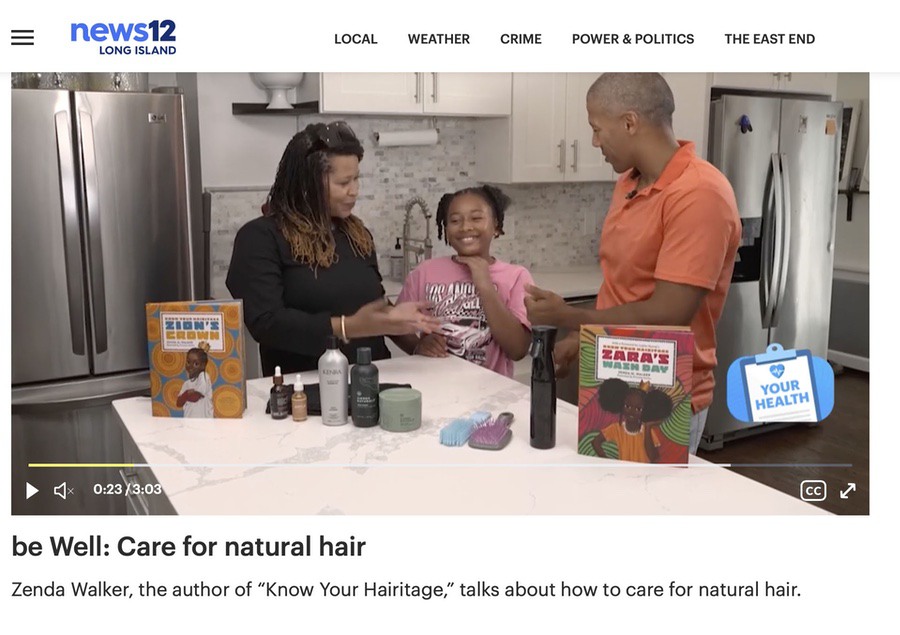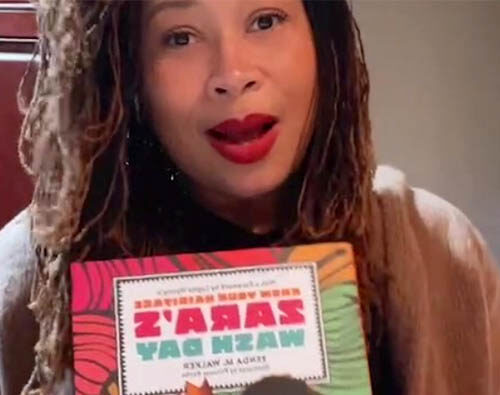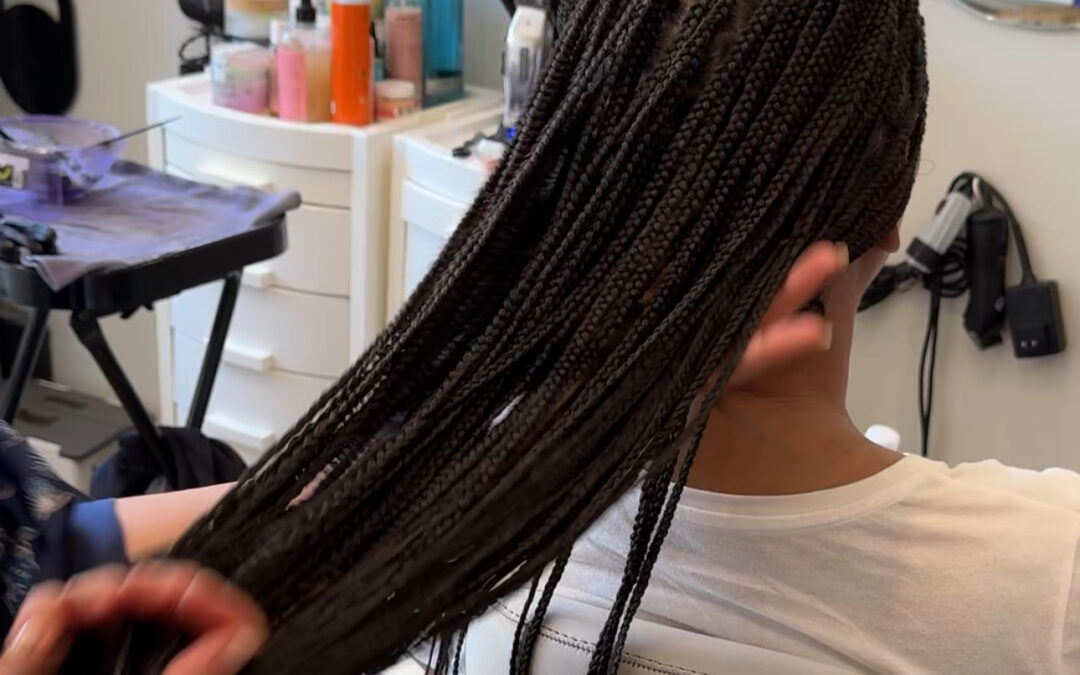
by Zenda Walker | Mar 21, 2025 | Activism, Business, Hairitage
Introduction
The recent Consumer Reports study on synthetic hair has delivered unsettling results. Confirming long-held concerns, the study, detailed in Leigh-Ann Jackson’s article, reveals that 100% of the top ten braiding hair brands tested contain harmful VOCs, lead, and carcinogens.
This isn’t just a news flash; it’s a wake-up call. We’ve been here before. The recent natural hair renaissance was driven, in part, by the desire for healthier alternatives after hair relaxers were linked to an increased risk of certain cancers. This new revelation about synthetic braiding hair feels like a betrayal of the hard-won progress we’ve made in embracing our natural hair and cultural styles.
So, where do we go from here?
The Impact on Our Traditions
Consumer Reports’ findings hit hard because our hair customs are deeply intertwined with our identity. We’ve relied on certain products to achieve the styles that connect us to our ancestors and reflect our personal style. The fear is real: how can we continue to honor our traditions when the very tools we use are potentially harming us?
This revelation forces us to confront a difficult truth: the pursuit of flawless styles may have come at a hidden cost. We’ve been conditioned to believe that certain products are essential for achieving our desired looks, but at what expense?
A Call for Radical Honesty and Re-evaluation
Now, I know this might ruffle some feathers, but it’s time for some radical honesty. We need to challenge the status quo and question the very definition of “beautiful” within our community.
Here are some provocative questions that may spark a much-needed dialogue:
1. What if we just let our hair live in its natural frizz? What if we embraced the texture that grows from our scalps, celebrating the unique beauty of our natural hair? Frizz isn’t a flaw.
2. What if we braided down the natural length of our hair? Imagine intricate braids that showcase the natural length and volume of our hair, without extensions or added chemicals. It’s possible.
3. What if we let our Afros shrink? We love the big, bold Afro, but what if we allowed our hair to naturally recoil, embracing its natural volume and shape? What if we valued health over size and length?
4. What if we normalize free-form or cultivated locs for all ages? What if we allowed our locs to evolve organically, celebrating the natural process and release the stigmas that are attached to locked communities?
These questions aren’t about abandoning our traditions; they’re about honoring and reimagining them. They’re about prioritizing our health and well-being without sacrificing our cultural expression.
The Path Forward: Embracing Cleaner Beauty Alternatives
The good news is that we don’t have to choose between our health and our heritage. There’s a growing movement within the Black hair community that’s focused on clean, natural, and non-toxic products.
Here are some braiding hair brands that are leading the way:
- ReBundle: Founded by, Ciara Imani May, is known for their sustainable, plant-based braiding hair derived from naturally extracted banana fiber.
- Dosso Beauty: Founded by Kadidja Dosso, this brand focuses on clinically tested, pre-cleansed, pre-stretched, hypoallergenic and itch-free braiding hair.
- Nourie Hair: Founded by Osahon Ojeaga this brand boasts vegan, clean braiding hair that releases a nourishing complex during the wear of the hair.
100% human hair is another alternative to minimize or avoid harmful toxins and the discomfort that can come from chemical inflammation. It is recommended to still pre-wash the hair prior to installation as an extra precaution.
Here are some Human hair bundle hair and wig brands that are at the top of our list:
- Trace by Angela C. Stevens (aka. Angela C. Styles): Includes classic bundles, clip-ins and U-part inventory options are coming soon.
- True & Pure Texture by Pekela Riley: Includes bundles and clip-ins with an array of textures to achieve endless styles.
- Eve By Boz by Bozoma Saint John: Accompanied by a full care line up, this new line of human hair wigs and bundles offers texture variety and inches that are great for head-turning looks: Eve By Boz Products are manufactured in Ghana, West Africa.
Conclusion
The Consumer Reports study is a turning point. It’s an opportunity for us to redefine our beauty standards and reclaim our hair rituals. Let’s continue to embrace our natural textures, explore innovative styles, and support brands that prioritize our health.
It’s time to strip down to the basic necessities of healthy haircare. Our traditional styles can be achieved with safer products and in some cases, a curated paired down line up. We don’t have to sacrifice our health for beauty. Let’s create a future where our hair is a symbol of both our heritage and our well-being.
Let’s start the conversation. What are your thoughts? Share your experiences and insights in the comments below.
Zenda Walker is licensed cosmetologist and award-winning author of “Zara’s Wash Day” and “Zion’s Crown”- two books that celebrate hairstyles of the African Diaspora (Released by Running Press Kids in 2024). Zenda is also the CEO of Know Your Hairitage-an education consulting company that supports K-12 school districts with culturally responsive programming. She is represented by The Seymour Agency. For more information visit www.knowyourhairitage.com.
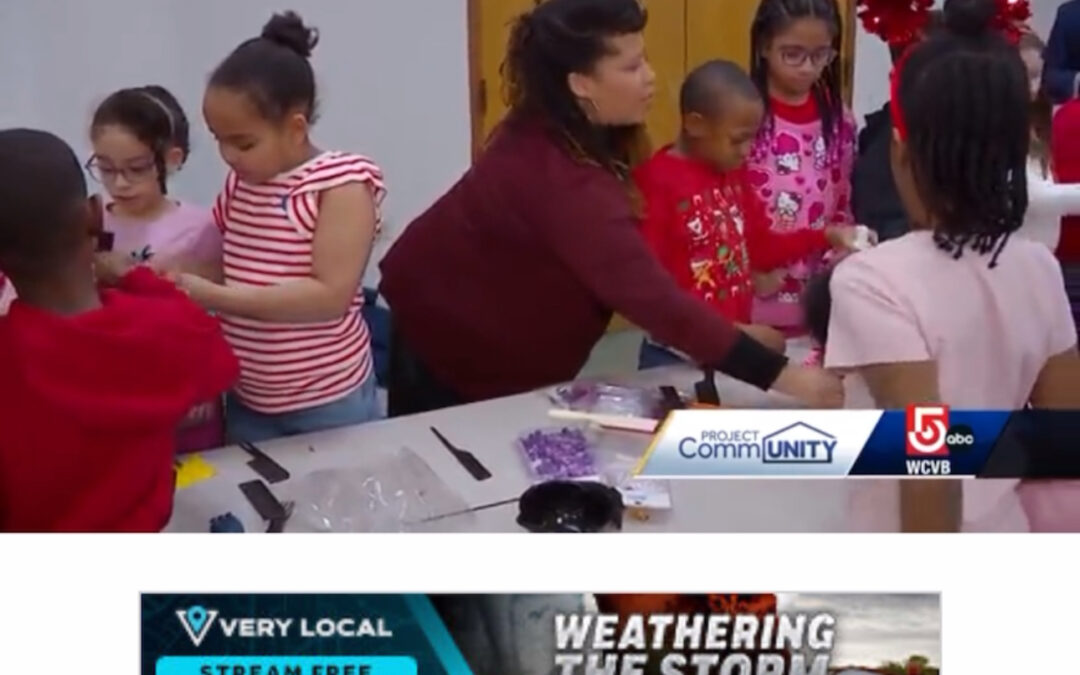
by Zenda Walker | Feb 18, 2025 | Activism, Culturally Responsive Content, Hairitage, Hairitage Activism
As seen on WCVB Channel 5- Reporter: Todd Kazakiewich
See full video here: https://www.wcvb.com/article/elmentary-school-students-in-boston-get-lesson-embracing-cultural-differences/6379941
BOSTON —
In honor of Black History Month, a Boston elementary school is getting a lesson in embracing cultural differences.
Children’s book author Zenda Walker is visiting the young scholars at the Mission Grammar School in Roxbury as part of Black History Month.
She reads to them from her books, “Zara’s Wash Day” and “Zion’s Crown,” books she said are written to educate and inspire young people of color.
“I hope they see themselves in the characters of these books, and I hope that something resonated with them where now they look at their wash day, their days at the barbershops a little differently, and really see that the styles that they wear every day is inspired and has some connection to history that we can all be proud of,” Walker said.
The visit is the culmination of a carefully curated cultural curriculum.
“We’re super excited to, like, amplify the voices of – specifically Black voices – and share it with our scholars,” teacher Marnie Walsh said.
“Marnie and I have really been planning — I lead the social-emotional learning group, and Marnie leads the DEI group for our school — and together, we collaborated about a whole month of activities and special days for the scholars to really enjoy and embrace their heritage,” teacher Emma Caffey
Students were asked what they learned from the books.
“What did you learn from the book?”
“That it really doesn’t matter what type of hair you have,” student Aamara Harris said.
“You should love your hair even when you have locks,” student Haven Petithomme said.
Students are now beginning February vacation with the kind of pride that comes with a fresh haircut — deeply rooted in a proud history and culture.
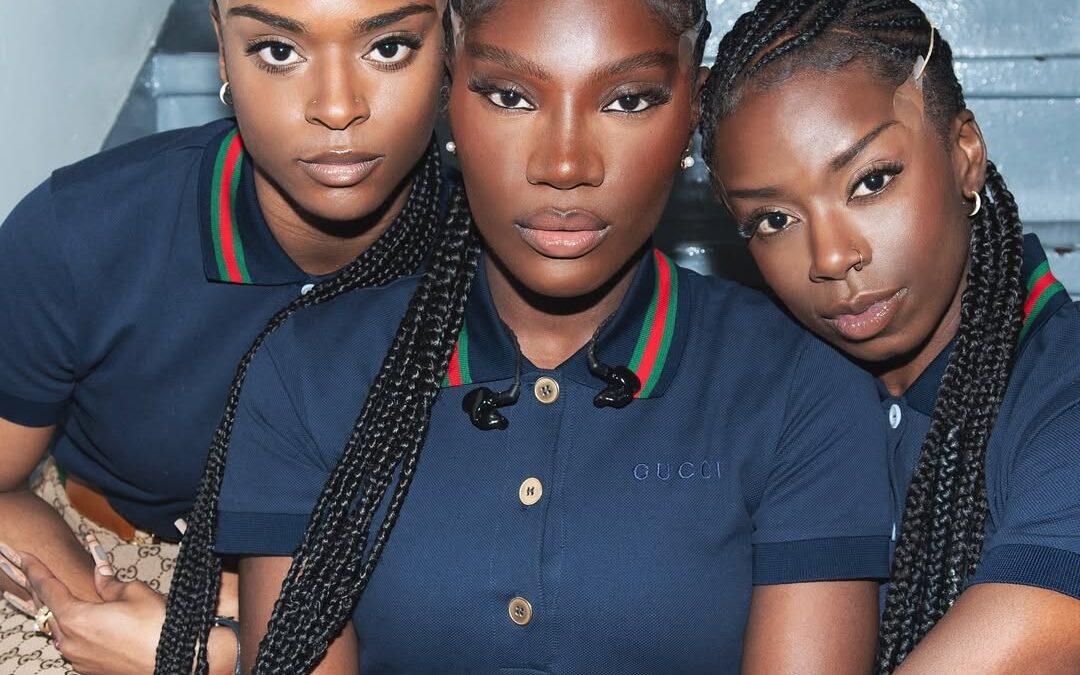
by Zenda Walker | Jan 16, 2025 | Uncategorized
Okay, let’s be real: Doechii isn’t just a rapper, she’s a cultural phenomenon. This Tampa-born artist is absolutely killing it in the hip hop scene right now. When you watch and listen to Doechii, prepare for an experience. Her sound is fluid. It’s like the best of hip hop, spoken word, jazz, and R&B converging into a single, brilliant mind. Her lyricism is fire, her flow is mesmerizing, and her fashion? Don’t even get me started. It’s a captivating blend of high-fashion and street style, a true reflection of her unique identity.
But here’s the thing: Doechii’s artistry goes way beyond the surface. Her hair isn’t just an accessory; it’s an integral part of her performance, a powerful statement of self-expression. From intricate cornrows to flowing braids and the embrace of her natural coils, she’s showcasing the beauty and diversity of Black hairstyles with an unapologetic confidence. This isn’t just about fashion; it’s a profound act of cultural reclamation. Doechii is telling her fans, and the world, that their identities, their stories, and their unique expressions of self are valid, beautiful, and worthy of celebration. She’s not just a musician; she’s a cultural icon, and frankly, we’re all here for it.
Her recent performance of “Denial is a River” and “Boiled Peanuts” from her 2024 Alligator Bites Never Heal album on the The Late Show with Steven Colbert solidified her status as a rising force. But beyond the infectious beats and impressive rhymes, you can’t help but be captivated by the synchronized braiding routine performed by Doechii and her dancers. The intricate braids, meticulously crafted in unison, weren’t just a visually stunning performance element; they were a powerful symbol of connection and shared history. What a beautiful metaphor for the interconnectedness of the Black community, highlighting the shared struggles and triumphs that bind us together. Her NPR Tiny Desk performance didn’t disappoint either, as her entire band collectively celebrated the art of braids and ornamentation to compliment an iconic medley of unforgettable tunes.
Doechii’s hairstyling choices extend far beyond the braids that stole the show on Colbert and Tiny Desk. From sleek cornrows and cosplay wigs to voluminous afros, she consistently uses her hair to express herself and complement her music. Each style feels like a deliberate choice, adding another layer of depth to her artistry.
Doechii’s meticulous attention to detail, from her music to her fashion and hairstyling, is a testament to her dedication to her craft. Her hair choices are not just an afterthought; they are a powerful extension of her artistry, a way to connect with her audience on a deeper level, and a celebration of her cultural heritage. In a world saturated with generic pop stars, Doechii’s commitment to authenticity and storytelling makes her a truly the breath of fresh air that we all need right now.
Out Now: Alligator Bites Never Heal (19 Songs)
Visit www.knowyourhairitage.com to learn more about the history and cultural significance of Black hairstyles!
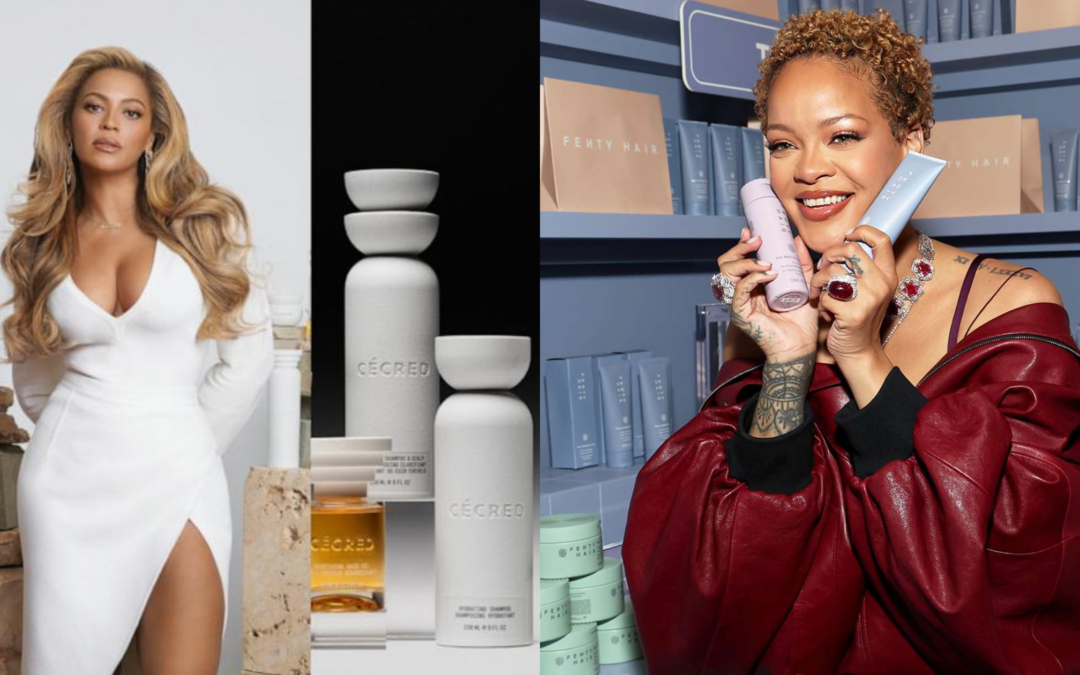
by Zenda Walker | Jun 28, 2024 | Business, Hairitage, Pop Culture & Hairitage, Textured Hair, Wash Day
The beauty industry is experiencing yet another revolution, with textured hair care evolving from the celebrity talent pool. Gone are the days of struggling to find products that meet the unique needs of Black and Brown hair. Today, we’re bombarded with an abundance of options, and that’s a cause for celebration, not competition.
This explosion of brands isn’t just a trend – it’s a reflection of the immense buying power of Black beauty consumers, which was a staggering $9.4 billion in 2023 with dollar, unit, and household growth outpacing growth for the United States according to a Nielson NIQ report. It’s no surprise that major retailers are taking notice and dedicating coveted shelf space to cater to this underserved market.
The arrival of celebrity brands like Beyoncé’s Cécred and Rihanna’s Fenty Hair has undoubtedly generated significant buzz. While some debate the launch strategies and product performance of these lines, others question if the celebrities themselves are “deserving” of success.
Here’s the truth: the beauty market is vast and diverse. Some consumers will gravitate towards premium, luxury brands like Cécred seeking high performance and a touch of exclusivity. Others will find loyalty in lines like Fenty Hair, offering reparative solution products for various curl patterns at a more accessible price point and distribution. And then there’s the value-conscious consumer who prioritizes budget over brand efficacy and loyalty.
Instead of getting caught up in celebrity endorsements, let’s focus on the bigger picture. Today, we’re no longer forced to settle for subpar options. We have the freedom to experiment, discover, and tailor a haircare regimen that celebrates our individuality.
This latest revolution didn’t happen overnight. We owe a debt of gratitude to the countless Black and Brown entrepreneurs who have been pushing boundaries for years. Pioneering brands like Kreyòl Essence by co-founders Yve-Car Momperousse and Stéphane Jean-Baptiste, Eden Bodyworks by Jasmine Lawrence, Taliah Waajid Brand by Taliah Waajid, TPH by Taraji P. Henson, Sienna Naturals by Issa Rae and Hannah Diop, 4U by Tia Lowry, Pattern Beauty by Tracee Ellis Ross, Carol’s Daughter by Lisa Price, TGIN by Cris-Tia Donaldson, Camille Rose by Janell Stephens, and Mielle Organics by Monique Rodriguez, along with countless others, paved the way for today’s flourishing marketplace. And we can’t forget about our Latinx founders who are changing the haircare game like, Babba Rivera of Ceremonia, La La Anthony of Inala, Julissa Prado of Rizos Curls, Aisha Cebellos-Crump of Honey Baby Naturals and Botanika Beauty, and Lulu Cordero of Bomba Curls.
Ultimately, the true winners in this beauty revolution are us, the consumers. We have the power to choose, to experiment, and to embrace the beauty of our coils in a multitude of ways. So, let’s celebrate the options, honor the pioneers, and most importantly, celebrate ourselves. The future of textured hair care is bright, and it’s a future built by and for us.
Zenda M. Walker is the award-winning author of “Zara’s Wash Day” and “Zion’s Crown”-two books in the Know Your Hairitage series. She is represented by The Seymour Agency.
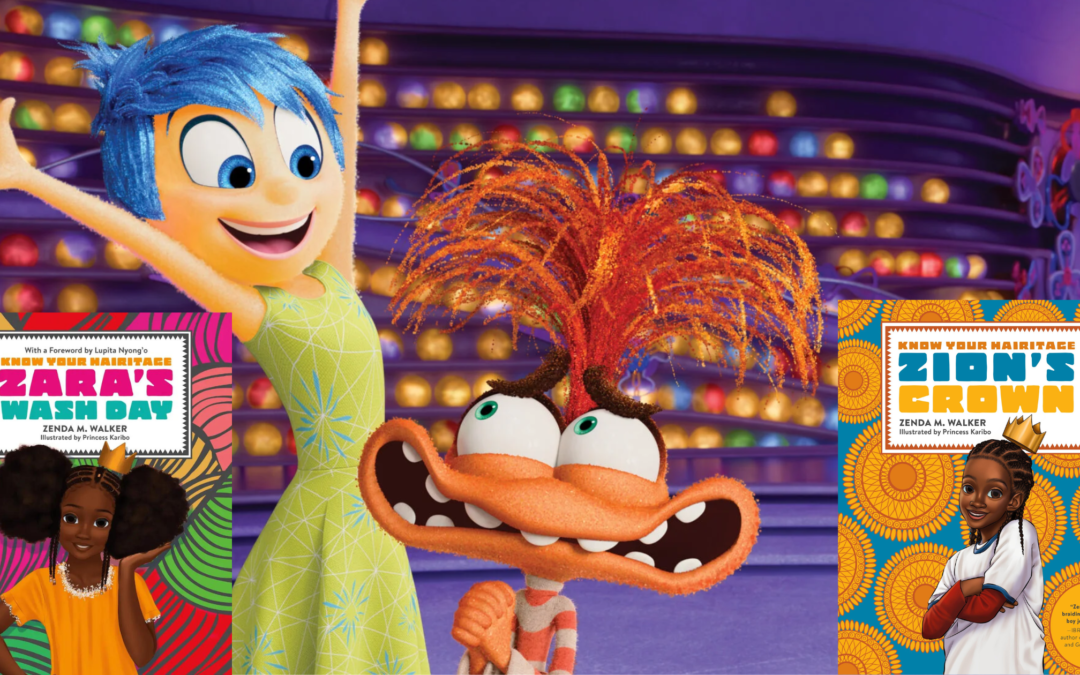
by Zenda Walker | Jun 23, 2024 | Culturally Responsive Content, Natural Hair, Pop Culture & Hairitage, Textured Hair, Wash Day
The “Inside Out” franchise is making it much easier for parents to navigate those tough conversations about emotions. The first movie brilliantly introduced us to the development of a young girl’s emotions. Joy, Sadness, Anger, Disgust, and Fear learned to work together to safeguard Riley’s well-being. “Inside Out 2” tackles Riley’s teenage years, where new emotions take center stage, and she grapples with solidifying her sense of self. Enter Anxiety, Envy, Embarrassment, and Boredom (Ennui).
Watching Riley navigate these overwhelming emotions became a powerful metaphor for why I started writing books that celebrate “hairitage.” Through my research and countless conversations with clients over the past two decades, I’ve witnessed firsthand how deeply our hair stories are tied to self-perception. Memories shape beliefs, and the messages we receive about our hair, from family and society alike, have a profound impact.
Some clients I’ve spoken with grew up hearing affirmations about their beautiful, textured hair. For others, the narrative was vastly different. Words like, “ugly,” “difficult,” “messy,” and “unprofessional,” become too often associated with curly, coily, Afro-coily textures. Some received both positive and negative feedback, leaving them conflicted and perpetually unsure of themselves.
Black women, in particular, face a unique burden when it comes to societal expectations surrounding hair. That’s why it’s crucial for guardians, parents, and hairstylists to be hyper-aware of how they communicate with young people, especially during wash day. Positive experiences, in the emotional and physical developmental stages, can significantly impact a child’s self-esteem.
“Inside Out 2” cleverly highlights how our own childhood anxieties and traumas can sometimes resurface and influence our adult decisions. So, how can an adult with insecurities about their own textured hair empower a child to embrace theirs? The movie, perhaps unintentionally, offers a solution: it reminds us that occasional fear, anxiety, disgust, and anger are normal parts of life’s journey. We don’t have to bottle up these “maladaptive” emotions. Instead, acknowledging and accepting them can be the first step towards rediscovering joy. Perhaps this is why many of Riley’s core memories end up including multiple emotions, not just a single emotion formed in isolation.
Our hair wash day memories can embody several emotions, and discovering the joy in the journey is key to trusting the process and embracing our hair in all its glory.
My daughter, Zara, and I confronted the root of our hair insecurities by experimenting with techniques and products, ultimately finding joy in learning about the cultural hairstyles passed down in my family – a connection to a rich ancestral legacy. The experiences of Zara and Zion in my books, “Zara’s Wash Day” and “Zion’s Crown,” mirror this journey as well. While moments of fear, doubt, and frustration may still arise, our heightened awareness and appreciation for our hairitage make it easier to bounce back and rediscover feelings of joy.



